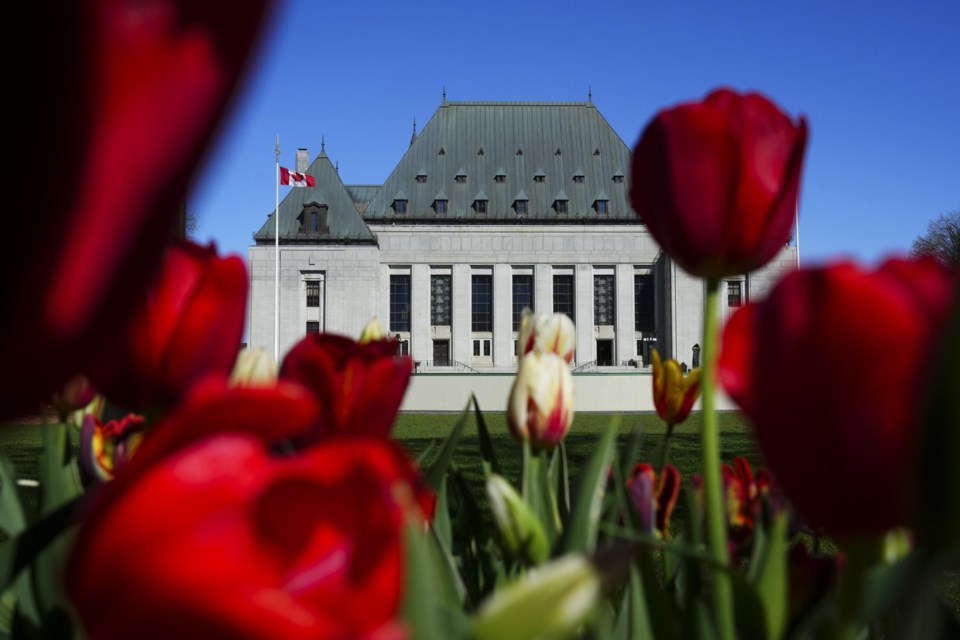OTTAWA вҖ” An acquittal is the appropriate outcome for a British Columbia woman whose conviction in the drowning death of a toddler was set aside two years ago, the Supreme Court of Canada has ruled.
Tammy Bouvette was charged with second-degree murder but pleaded guilty to the lesser charge of criminal negligence causing the bathtub drowning death of a 19-month-old girl she had been babysitting in 2011 in Cranbrook, B.C.
In April 2023, the B.C. Court of Appeal found the Crown had failed to disclose key evidence to Bouvette's lawyers, depriving her of the opportunity to make an informed decision about how to plead.
The Court of Appeal called the original conviction "the product of a miscarriage of justice" because the evidence and circumstances established a reasonable possibility that Bouvette would not have pleaded guilty to criminal negligence causing death if full disclosure had been made.
The Appeal Court ordered a judicial stay of proceedings, permanently halting the case without determining guilt or innocence.
Bouvette then asked the Supreme Court for an acquittal вҖ” a declaration of being found not guilty.
The Crown agreed that she should be acquitted.
In its decision Friday, the Supreme Court unanimously said an acquittal is the appropriate remedy in the case and provided two sets of reasons for reaching the conclusion.
Under section 686(2) of the Criminal Code, a conviction is quashed when an appeal has been allowed due to a miscarriage of justice.
The appeal court then looks at the appropriate remedy вҖ” an acquittal, a new trial or a judicial stay.
Writing for the Supreme Court majority, Justice Nicholas Kasirer said Bouvette should be acquitted immediately on the grounds that the Crown seeks an acquittal and has expressly stated that it would call no evidence at a new trial.
Rather than forcing the parties to go through pro forma proceedings to achieve this result, or standing in the way of it by entering a judicial stay, the just outcome is for the acquittal to be entered now вҖ” even though there is evidence that could lead a reasonable jury, properly instructed, to convict Bouvette at a new trial, Kasirer said.
"Consequently, Ms. Bouvette must be acquitted by the Court without further delay or any possible distress associated with sending the matter back to the trial court," he wrote.
On a May morning in 2011, Bouvette gave a bath to Iyanna Teeple, who was in her care.
Bouvette called 911 seeking help for the girl. Emergency responders arrived swiftly to find Bouvette trying to revive the child, who was not breathing and had no pulse. The girl was taken to hospital and later airlifted to a Calgary facility. She was pronounced brain-dead the next day and died a short time later.
An autopsy was performed by a doctor who testified for the Crown at Bouvette's preliminary inquiry that the girl had recently suffered injuries, that she died by drowning and that the manner of death was undetermined.
After pleading guilty to criminal negligence causing death, Bouvette was sentenced to 12 months in prison and a period of probation.
In 2020, a special prosecutor appointed to conduct an independent review found that Bouvette might not have received disclosure of materials relevant to the case.
The Crown then disclosed materials вҖ” including the results of an external peer review of the doctor's work in Bouvette's case, which said his conclusions concerning the child's autopsy were unreasonable.
This report by The Canadian Press was first published June 6, 2025.
Jim Bronskill, The Canadian Press



